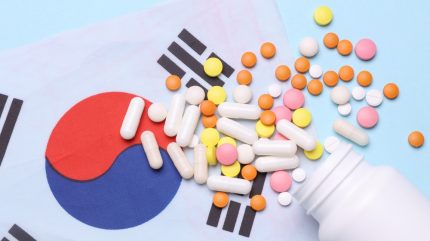
China’s growth as a drug licensing hub is well-treaded, but a surge in deals in South Korea means it is also becoming a go-to destination for big pharma companies, according to market analysis.
According to the GlobalData deal database, the deal value for South Korean drug licensing agreements has so far reached $7.68bn this year, marking a 113% increase from 2024. The out-licensing of South Korean drugs to international firms surged by 180%, around a $5.1bn increase, from 2024 to so far in 2025.

Discover B2B Marketing That Performs
Combine business intelligence and editorial excellence to reach engaged professionals across 36 leading media platforms.
The momentum in out-licensing was largely fuelled by billion-dollar agreements among large pharma companies such as Eli Lilly and GSK. Eli Lilly outlaid $630m for OliX Pharmaceuticals’ metabolic-associated steatohepatitis (MASH) candidate in February and agreed a separate $1.3bn deal for biotech Rznomics’ RNA-based gene therapies in May. GSK meanwhile licensed ABL Bios’ blood-brain barrier shuttle platform for $2.8bn in April.
GlobalData senior business fundamentals analyst Ophelia Chan says: “Once primarily recognised for generic drug production, South Korea is now transitioning into a global hub for novel innovative drug discovery and advanced drug technologies, bolstered by government support and increasing international investment. This transition positions the country as a strategic bridge between Western and Asian markets.”
In January 2025, South Korea established the National Bio Committee to make the country one of five global leaders in the bio industry by 2035. Part of this mandate is to enhance the country’s competitiveness in novel drug and advanced biopharmaceutical technology development.
According to South Korea’s Ministry of Science and IT, the committee plans to create a Won1tn ($695.7m) fund to promote private investment in the biopharmaceutical and vaccine industry. The initiative builds on ongoing reforms as the government aims to reduce drug development timelines and costs, GlobalData said.

US Tariffs are shifting - will you react or anticipate?
Don’t let policy changes catch you off guard. Stay proactive with real-time data and expert analysis.
By GlobalDataSouth Korea joins China as a fast-growing destination for promising pipeline drug candidates. The total deal value of US licensing of innovator drug candidates from Chinese biopharma companies has surged 280% since 2020. A bipartisan report in the US has called for at least $15bn of funding over the next five years to avoid being eclipsed by China in biotech advancement.
The future of the US and European pharma industries’ relationship with Chinese and South Korean companies will require sturdy trade relationships between the regions. This has been stretched this year with tariffs imposed by President Donald Trump as his administration looks to bolster domestic manufacturing in the US.
While licensing deals do not equate to imported products, Trump has maintained that transferring technology to China poses a threat to national security. The controversial BIOSECURE Act, which would have blacklisted Chinese biotechs and manufacturers from accessing US funding and collaborating with US pharma companies, is still in regulatory limbo.
Another announcement made by the US Food and Drug Administration (FDA) was for an immediate review of new clinical trials that involve sending American citizens’ living cells to China and other hostile countries for genetic engineering and subsequent infusion back into US patients. This move may potentially impact deals that pharma and biotech’s have in place with Chinese contract development and manufacturing organisations (CDMOs).




